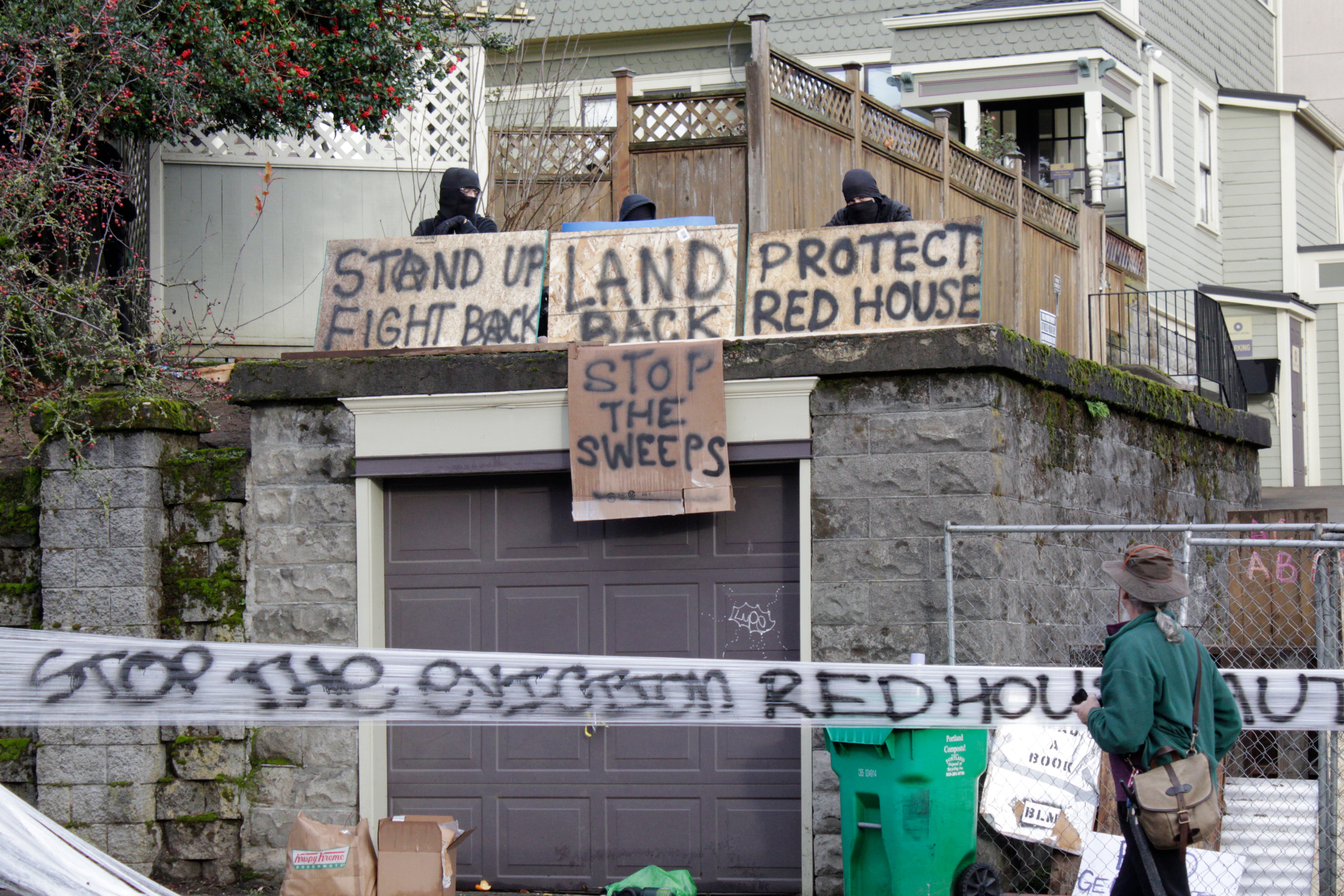Investor in Portland eviction protest says he'd sell home
The real estate investor who owns a house that anti-gentrifiation protesters have surrounded in Portland, Oregon, has offered to sell the property back to the former owners

The real estate investor who owns the Portland Oregon house that anti-gentrifiation protesters have surrounded with barricades has offered to sell the property back to the former owners.
Roman Ozeruga bought the home through a foreclosure sale in 2018 for $260,000. He told The Oregonian/OregonLive in a story published Friday that he would sell it back to the Kinneys, the Black and Indigenous family that owned the house since the 1950s.
Fencing, lumber and other makeshift barricades went up around the property on Dec. 8 after officers arrested about a dozen people in a clash over the eviction of the Kinney family.
“We are a small family business, we don’t seek to hurt anyone of course,” said Ozeruga, the co-owner of Urban Housing Development LLC. “We’re overwhelmed by the attention to this. We’ve already offered to sell back the property at cost because of course we’ve paid taxes, legal fees, bank fees, etc.”
Ozeruga said he would sell the home at cost without providing more specifics and that he has contacted the office of Portland Mayor Ted Wheeler, who has said that he hopes to negotiate a settlement to end the demonstrations at the site.
Ozeruga said he fears for his family’s well-being because of the protest activity.
“I myself am a father of little kids,” he said. “I don’t have a publicity team or even a lawyer for this. I’m concerned for safety to be honest.”
The street behind the blockade in the neighborhood of homes, coffee shops and restaurants is laced with booby traps aimed at keeping officers out — including homemade spike strips, piles of rocks and thick bands of plastic wrap stretched at neck-height across the roadway.
The scene has recalled more than four months of confrontations between police and protesters decrying racial injustice and police brutality that only abated weeks ago.
Supporters of the Kinney family say the home was unjustly taken through predatory lending practices that target people of color.
It’s in a historically Black part of Portland that for decades was one of the few areas Black residents could own homes because of racist real estate and zoning laws.
The 124-year-old home was one of the few remaining Black-owned residences in an area that has rapidly gentrified in the past 20 years.
Police have said between Sept. 1 and Nov. 30, there has been 81 calls to the property for fights, gunshots, burglary, vandalism and noise complaints, among other thing
Bookmark popover
Removed from bookmarks